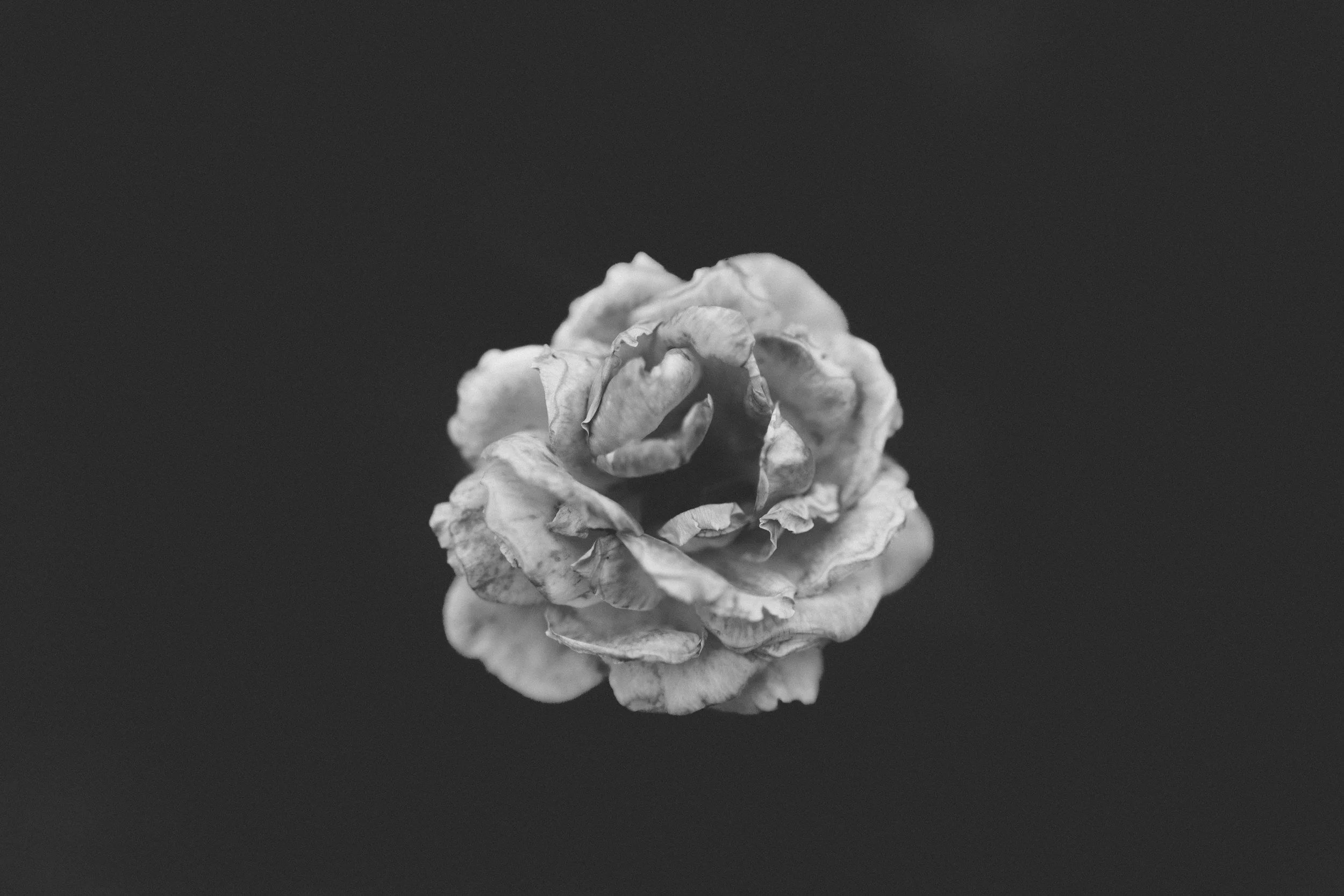Tribal Circuitry & Boundaries: How to Give Without Breaking
For most of my life, I thought love meant giving everything.
Every dollar I earned. Every hour I had. Every ounce of energy left in my body.
I housed family members. I financially supported my narcissistic mother for years. I took care of my sister and her children. I worked four jobs at once to make sure everyone else was okay.
I thought that's what family meant. I thought that's what being a good daughter, a good sister, a good provider meant.
I thought my purpose was to take care of everyone.
And I did. Until my body couldn't do it anymore.
When I collapsed from burnout and spent months bedridden, I had to face a painful truth:
I wasn't being loving. I was being used. And I was letting it happen.
Because somewhere along the way, I confused my tribal circuitry—my natural desire to support my community—with the belief that I had to sacrifice myself to be valuable.
If you're someone who gives and gives until there's nothing left, this is for you. Because being tribal doesn't mean breaking yourself. It means learning to give from overflow, not depletion.
What Is Tribal Circuitry?
In Human Design, tribal circuitry is one of the main ways energy flows through our charts. It's the energy of family, community, support, and resources.
Tribal energy asks: Who is in our tribe? How do we support each other? How do we share resources and take care of our own?
It's beautiful energy. Sacred energy. It's about loyalty, commitment, and showing up for the people who matter.
But tribal energy has a shadow side.
When you have strong tribal circuitry—when you're wired to support, provide, and take care of your community—it's easy to lose yourself in it.
It's easy to give until you're empty.
It's easy to say yes when you should say no.
It's easy to confuse being needed with being loved.
And it's easy to believe that if you stop giving, you'll stop mattering.
The Shadow of Tribal Energy: When Giving Becomes Breaking
I have strong tribal circuitry. And for years, I operated in the shadow of it.
I gave because I thought that's what made me valuable. I gave because I was afraid of being abandoned if I stopped. I gave because I didn't know how to say no without feeling guilty.
I supported my mother financially, even though she was narcissistic and had directly contributed to my childhood abuse. Even though she never protected me when I needed her most. Even though the relationship was toxic and draining.
I housed family members who didn't contribute. I paid for everything. I stretched myself so thin trying to keep everyone afloat that I stopped being able to care for myself—or my daughter Rose.
I was the provider. The strong one. The one everyone leaned on.
But no one was holding me.
And I didn't think I was allowed to ask for that. Because in my mind, tribal meant I take care of everyone else, and I don't need anything in return.
That's not tribal. That's martyrdom.
And it almost killed me.
The Difference Between Tribal and Codependent
Here's what I had to learn the hard way:
Tribal energy is about mutual support. Codependency is about one-sided sacrifice.
Tribal means: we take care of each other. We share resources. We show up for one another. We give and we receive.
Codependency means: I give everything, you take everything, and I pretend I'm fine with it.
Tribal is reciprocal. It flows both ways. It nourishes everyone, including you.
Codependency is a one-way valve. Everything flows out of you, and nothing flows back in. You deplete yourself trying to keep everyone else okay, and you call it love.
For years, I thought I was being tribal. I thought I was honoring my design by taking care of my family.
But I wasn't in community. I was in servitude.
I wasn't being supported. I was being drained.
I wasn't part of the tribe. I was the one holding the tribe together while I fell apart.
And the worst part? I thought that's what I was supposed to do.
Why Tribal People Become People-Pleasers
If you have strong tribal energy, you know how hard it is to say no.
Saying no feels like betrayal. It feels like abandonment. It feels like you're breaking the code.
Because tribal energy is loyal. It's committed. It values family and community above almost everything else.
So when someone in your tribe needs something, your instinct is to give it. Even if you don't have it. Even if it costs you. Even if it hurts.
You don't want to let anyone down. You don't want to be the reason something falls apart. You don't want to be seen as selfish or cold or uncaring.
So you say yes. Again and again. Even when your body is screaming no.
You people-please. You overextend. You sacrifice your own needs to meet everyone else's.
And you tell yourself it's love.
But here's the truth: people-pleasing isn't love. It's fear.
Fear of being rejected. Fear of being abandoned. Fear of being seen as not enough.
Real love—tribal love—has boundaries. It has limits. It has reciprocity.
Real love doesn't ask you to destroy yourself to prove you care.
The Moment I Learned to Say No
When I was bedridden, I had no choice but to stop giving.
I couldn't work. I couldn't provide. I couldn't take care of anyone.
And you know what happened?
Some people disappeared. Some people got angry. Some people made it clear that my value to them was tied to what I could do for them, not who I was.
And that hurt. It hurt so much.
But it also clarified everything.
Because the people who stayed—the ones who showed up for me when I had nothing to give—those were my real tribe.
My daughter Rose, who took care of me when I couldn't take care of myself.
My husband, who held me and told me I didn't have to earn his love.
A few friends who didn't need me to be strong or productive to matter.
Those were the people who loved me, not what I could do for them.
And everyone else? They weren't my tribe. They were just people I was giving to out of obligation, guilt, or fear.
That realization changed everything.
I started saying no. Not out of anger. Not out of spite. But out of self-preservation.
I stopped financially supporting my mother. I stopped housing family members who didn't contribute. I stopped saying yes to every request that came my way.
And I felt guilty. God, I felt so guilty.
But I also felt something else: relief.
Relief that I didn't have to carry everyone anymore. Relief that I could choose myself without it meaning I didn't care. Relief that I could love my family without sacrificing my life for them.
That relief? That was my body telling me I was finally doing the right thing.
Boundaries Are Not Betrayal
If you have strong tribal energy, you need to hear this:
Setting boundaries doesn't mean you don't care. It means you care about yourself too.
You can love your family and still say no.
You can support your community and still protect your energy.
You can be loyal and still have limits.
Boundaries aren't walls. They're not rejection. They're not coldness.
Boundaries are containers. They protect what's sacred. They allow you to give from a place of wholeness instead of depletion.
When you set boundaries, you're not abandoning your tribe. You're making sure you're still standing so you can show up for your tribe.
Because here's the thing: you can't pour from an empty cup.
You can't support anyone if you're collapsing under the weight of it all.
You can't be there for your community if you're too exhausted, resentful, and burned out to show up.
Boundaries aren't selfish. They're sustainable.
They're how you give without breaking.
What Reciprocal Tribal Energy Looks Like
Real tribal energy—healthy, reciprocal tribal energy—looks like this:
You give, and you receive. Support flows both ways. You don't carry everyone while no one carries you.
You're allowed to have needs. You're not just the giver. You're also allowed to ask for help, to be held, to be supported.
You say no without guilt. You understand that saying no to one thing is saying yes to something else—usually yourself.
You give from overflow, not obligation. You give because you want to, because it feels aligned, not because you're afraid of what happens if you don't.
You trust that your tribe can handle your boundaries. If someone can't respect your limits, they're not your tribe. They're someone using you.
You honor your capacity. You know your limits. You know when you're at your edge. And you stop before you break.
This is what I had to learn. This is what saved me.
I'm still tribal. I still love supporting my community. I still show up for the women in my circles, for my family, for my daughter.
But now I do it from a place of fullness, not emptiness.
I give because I want to, not because I have to.
And that changes everything.
How to Honor Your Tribal Nature Without Depleting Yourself
If you're wired for tribal energy and you're learning to give without breaking, here's how:
1. Check your motivation before you say yes.
Are you saying yes because you genuinely want to? Or because you're afraid of what happens if you don't?
If it's fear, guilt, or obligation—pause. That's not tribal. That's codependent.
2. Ask yourself: Is this reciprocal?
Are you giving to someone who also gives to you? Or are you the only one giving in this relationship?
Tribal energy requires reciprocity. If it's always one-sided, it's not community—it's exploitation.
3. Practice saying no without over-explaining.
"No" is a complete sentence. You don't have to justify it. You don't have to make it okay for the other person.
Your no protects your yes. And your yes is sacred.
4. Let people show up for you.
Stop thinking you have to do it all alone. Let your tribe support you. Let them give to you the way you give to them.
You're allowed to receive. You're allowed to be held. You're allowed to need people.
5. Release the people who only want you when you're giving.
If someone disappears when you set boundaries, they were never your tribe. They were just someone taking from you.
It hurts to see that. But it also frees you to find your real people—the ones who love you, not just what you do for them.
6. Remember: You're part of the tribe too.
You're not separate from the community you're supporting. You're not the exception to the care and support you give everyone else.
You deserve the same tenderness, the same grace, the same rest you offer to others.
The Soft Life Is Tribal—With Boundaries
The soft life isn't about isolation. It's not about cutting everyone off and only caring about yourself.
The soft life is deeply tribal. It's about community, connection, and mutual support.
But it's tribal with boundaries. It's tribal with reciprocity. It's tribal with self-preservation.
It's understanding that you can love your people and still choose yourself.
You can show up for your community and still protect your energy.
You can be loyal and still have limits.
The soft life is about sustainable giving. About showing up from overflow, not depletion. About being in community without losing yourself in it.
And that? That's the most tribal thing you can do.
Because when you're whole, your tribe gets the best of you. Not the exhausted, resentful, broken version. The aligned, nourished, present version.
That's the woman your people actually need.
To the Woman Who Gives Too Much
If you've been giving until you break, hear me:
You are not selfish for having boundaries. You are not cold for saying no. You are not failing for choosing yourself.
You're learning to be tribal sustainably. You're learning to give without breaking. You're learning that love doesn't require your destruction.
And that's sacred work.
Your people—your real people—will understand. They'll honor your boundaries. They'll support you the way you've been supporting them.
And the ones who don't? They were never your tribe.
Let them go. Protect your energy. Give from overflow.
And come home to yourself.
🤍
Join us in the Soft Hearts Society, where we practice sustainable giving, healthy boundaries, and reciprocal support. Because you deserve a community that holds you, not just a community you hold. Let's be tribal—together, and whole.





